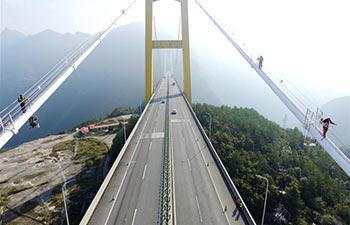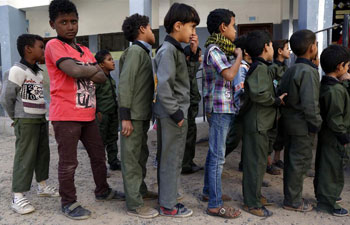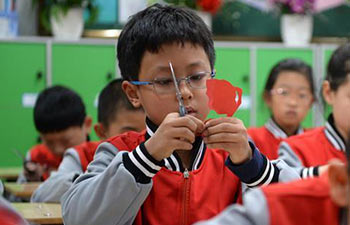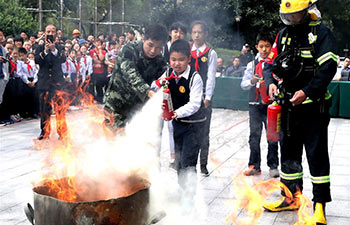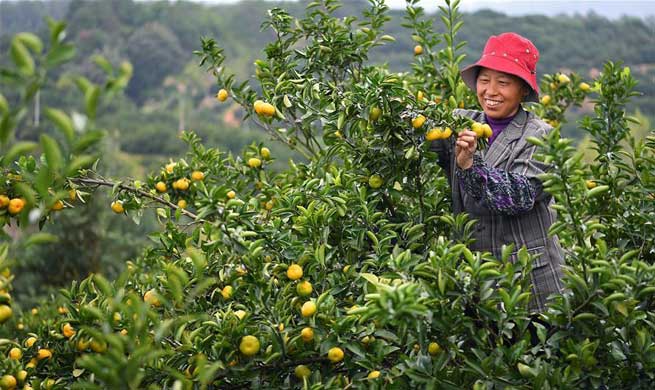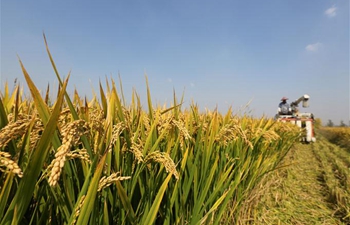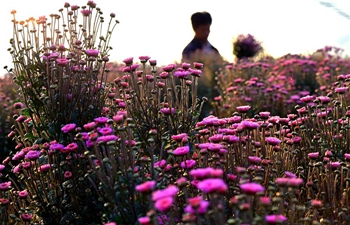DHAKA, Oct. 11 (Xinhua) -- Bangladesh can reduce poverty and accelerate growth by taking urgent actions to improve water quality and sanitation, a new World Bank report said.
The "Promising Progress: A Diagnostic of Water Supply, Sanitation, Hygiene, and Poverty in Bangladesh" report launched here Thursday found that poor drinking water quality affects the rich and the poor and the rural and urban people alike.
But the poorest population suffers three times more from water and sanitation related gastro-intestinal diseases.
The Washington-based lender said this research is part of the bank's WASH (Water Supply, Sanitation, and Hygiene) Poverty Diagnostics initiative in 18 countries, including Bangladesh.
Despite the country's remarkable progress in improving access to water and sanitation, it said 41 percent of all improved water sources are contaminated with E. Coli bacteria, which suggests a high prevalence of fecal contamination.
Today, according to the report, 98 percent of Bangladesh's population have access to water from technologically improved water sources. However, the water quality is poor. E. coli bacteria was present in 80 percent of private piped-water taps sampled across the country, a similar rate to water retrieved from ponds.
"Poor water quality and sanitation can hold back a country's potential because unsafe water and poor sanitation are linked to nutritional disadvantages in early-childhood," said Sereen Juma, acting country director for Bangladesh, Bhutan, and Nepal.
"In Bangladesh, more than one-third of children under five are stunted, limiting their ability to grow and learn. Bangladesh has made great strides in expanding access to water and can build on that progress by focusing on improving the quality of water and sanitation," he said.
Further, naturally occurring arsenic in ground water also affects people: about 13 percent of the country's water sources contain arsenic levels above Bangladesh's threshold, said the report.
The country's southeastern Chittagong and northeastern Sylhet divisions suffer most from arsenic contamination.
Climate change is increasing the intensity and frequency of natural disasters that disrupt water and sanitation services, it said, adding during times of disaster, about a third of households in the country's high-risk areas switch to contaminated, unimproved water sources.
The coastal areas are increasingly suffering from salinity-intrusion, which is affecting the poor more, said the World Bank report.
According to the report, Bangladesh has successfully eliminated the practice of open defecation. Still, about 50 million people use shared, rudimentary toilets, and only 28 percent of toilets are equipped with soap and water. In urban areas, slums have poor access to clean water and safe sanitation.
Large-city slums have five times less access to improved sanitation and have the highest rates of childhood undernutrition in the country, it said.
"There is scope for Bangladesh to improve access to sanitation beyond the household level to public places, schools, health facilities, and workplaces," said George Joseph, report co-author and World Bank senior economist.
"Only about half of manufacturing enterprises in Bangladesh have toilets. Only half of the primary schools have separate toilets for girls, and one in four adolescent girls miss school during menstruation. A safe water and sanitation environment will encourage more women to participate in the work force," the report said.





